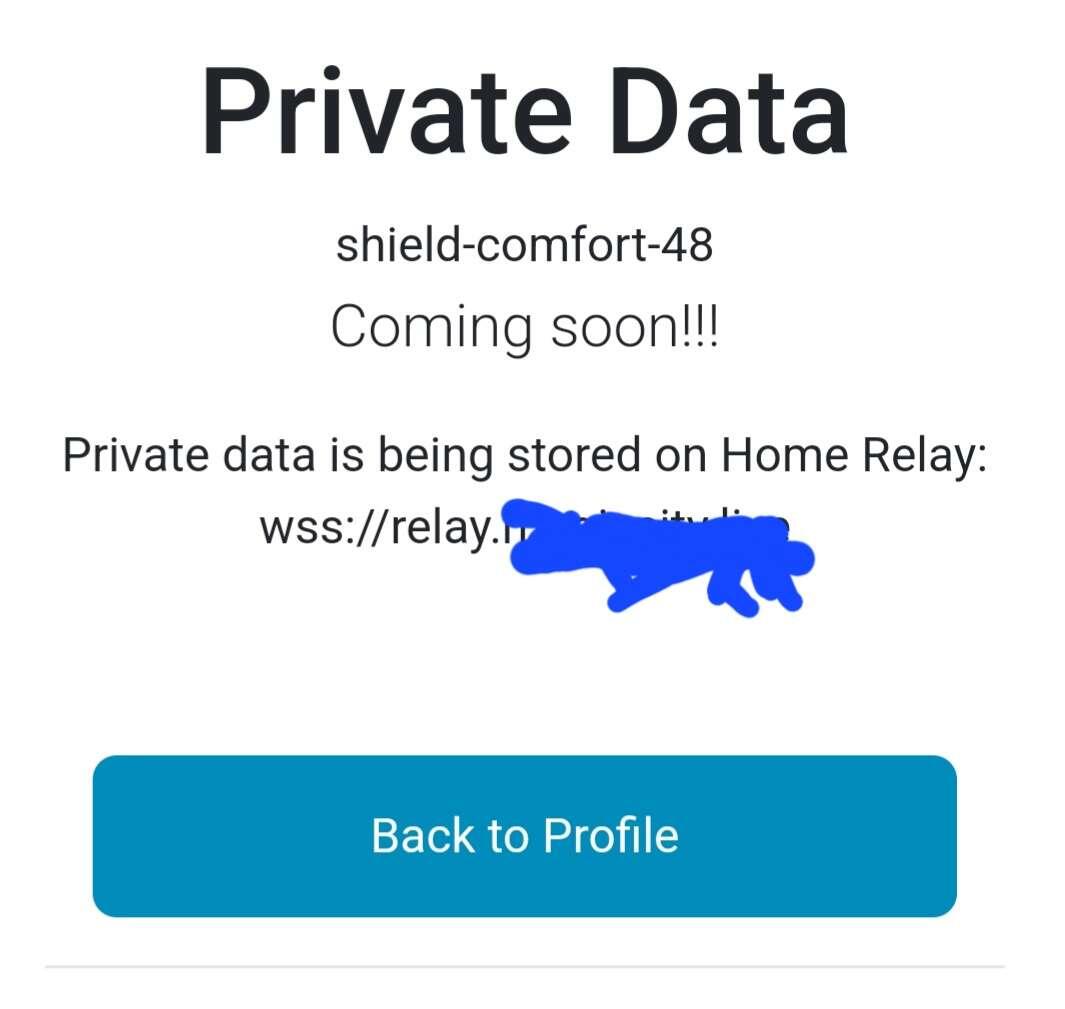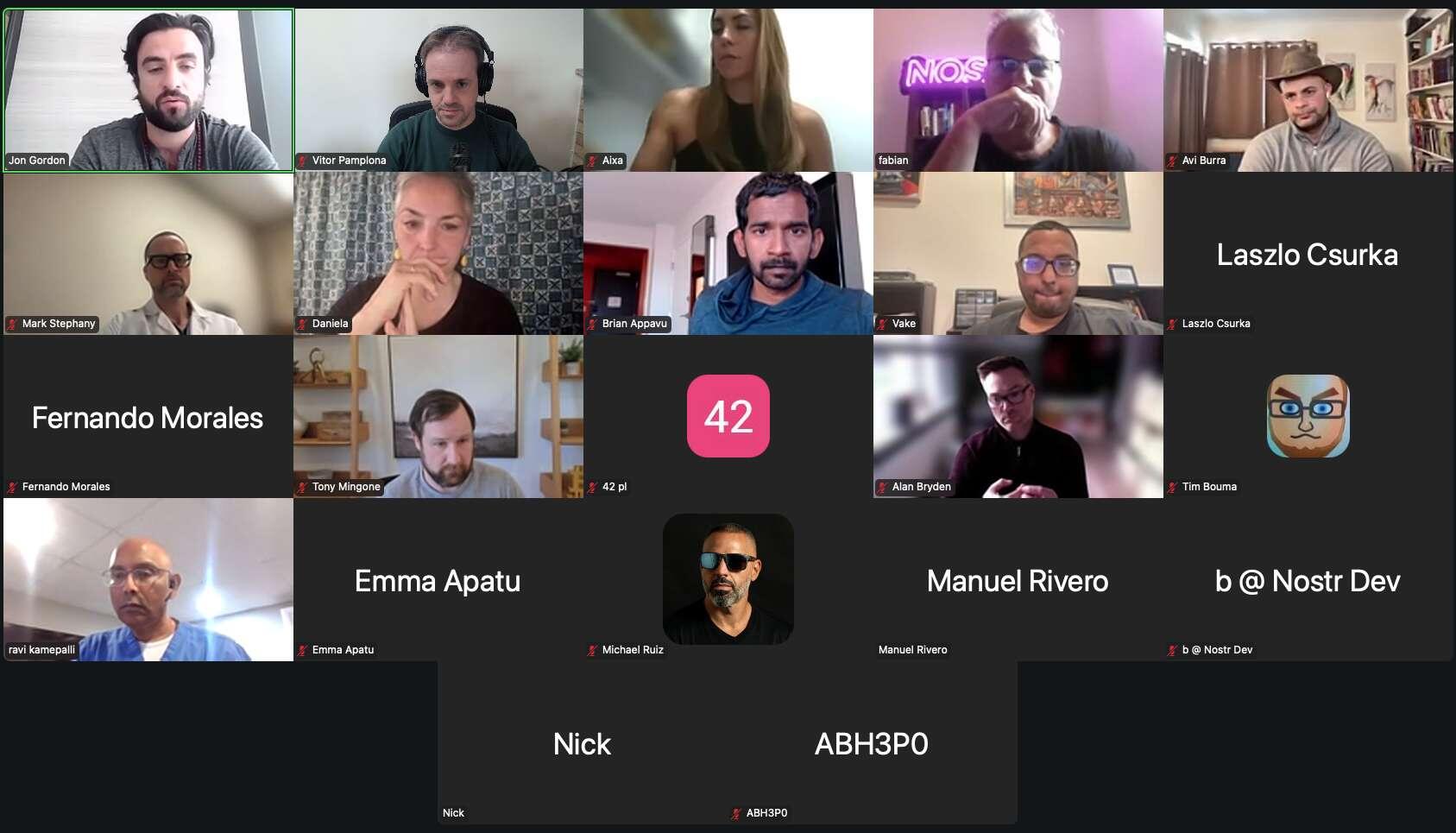The Yuri
2mo ago
What exactly is private data in this case? #AskNostr
npub1q6mcr
•
2mo ago
IT'S COMING!!! PRIVATE DATA STORED ON RELAYS for #nostr #safebox
After several months of fine-tuning saving funds on #safebox (also NIP-60 compliant) I am turning my focus to storing private data. It's now a piece of cake because of all of the infrastructure I had to build to manage funds. I am also testing on third party relays (redacted below). I plan to focus on health data leveraging what @Vitor Pamplona is leading.
This will be a MAJOR STEP forward for personal health and financial sovereignty.
All still in development. I should have this ready for more open testing in the weeks ahead.
Onward!

After several months of fine-tuning saving funds on #safebox (also NIP-60 compliant) I am turning my focus to storing private data. It's now a piece of cake because of all of the infrastructure I had to build to manage funds. I am also testing on third party relays (redacted below). I plan to focus on health data leveraging what @Vitor Pamplona is leading.
This will be a MAJOR STEP forward for personal health and financial sovereignty.
All still in development. I should have this ready for more open testing in the weeks ahead.
Onward!

See translation
See translation
0
0
0
0
0
Replies
npub1kun56
@npub1kun56
2mo ago
There's a lot of data that could be considered private that you might want to store on relays. The examples given in that particular post are eCash tokens, encrypted to a specific npub, and medical records.
Other examples might be private notes, bookmarks, and virtually anything else you wouldn't want available to just anyone.
Now, why would someone want to store this information on relays, rather than storing it locally?
One reason might be redundancy. These are records you may want to have backed up so they aren't lost in the case of fire or flood.
Another reason might be ease of remote access. Relays can already be accessed by all of your devices, regardless of whether you are connecting via your local network. If you have the know-how, you can also set up a relay that is only accessible via Tor.
Other examples might be private notes, bookmarks, and virtually anything else you wouldn't want available to just anyone.
Now, why would someone want to store this information on relays, rather than storing it locally?
One reason might be redundancy. These are records you may want to have backed up so they aren't lost in the case of fire or flood.
Another reason might be ease of remote access. Relays can already be accessed by all of your devices, regardless of whether you are connecting via your local network. If you have the know-how, you can also set up a relay that is only accessible via Tor.
See translation
0
0
0
0
0
The Yuri
@yuri
2mo ago
I guess this is it
npub1gcxzt
•
2mo ago
See translation
See translation
0
0
0
0
0
